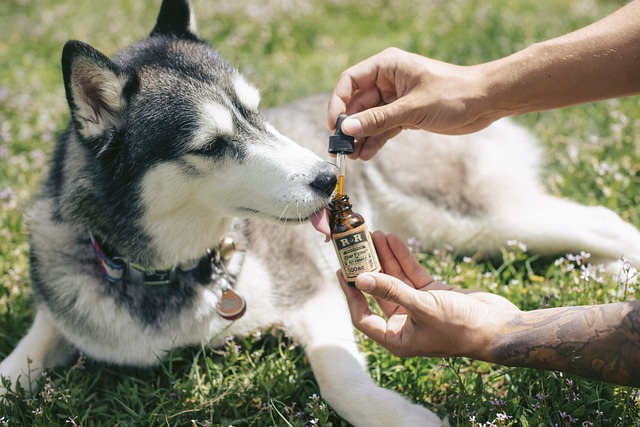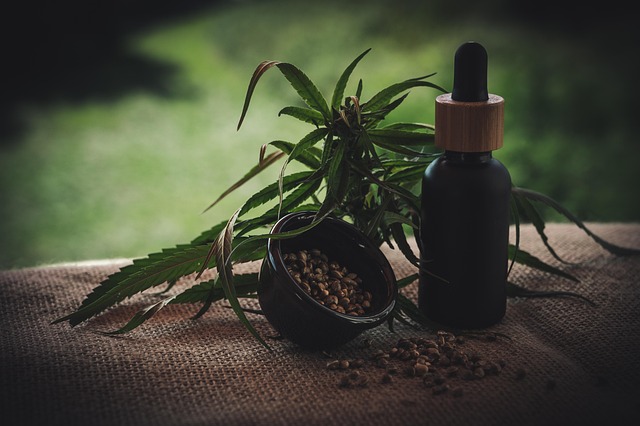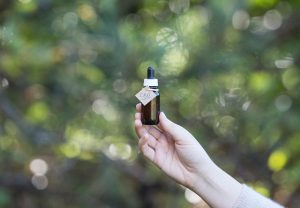Soil quality is critical for cannabis cultivation, especially for producing high-quality CBD, as it directly affects plant health and cannabinoid profiles. Regular heavy metals testing for CBD is essential due to potential contaminants like lead, mercury, and cadmium that can pose significant health risks when consumed. Sophisticated methods such as ICP-MS enable accurate detection of even low levels of harmful metals, ensuring consumer safety and product purity. Global regulatory frameworks mandate rigorous testing during production, setting maximum limits for heavy metals in CBD items worldwide. Best practices include industry-compliant testing regimens, maintaining detailed records, staying informed about environmental factors, and integrating sustainable farming methods to minimize heavy metal contamination in CBD products.
In today’s burgeoning cannabis industry, ensuring soil quality is paramount for producing high-quality CBD products. This article delves into the intricate relationship between soil health and CBD cultivation, with a specific focus on heavy metals testing. Understanding the impact of heavy metals on both soil and plants is crucial for maintaining purity in CBD extraction. We explore effective methods for heavy metals testing, regulatory standards, and best practices to safeguard consumer safety and market integrity in the CBD space.
Understanding Soil Quality and Its Impact on CBD Production

Soil quality is a critical factor in cannabis cultivation, particularly for CBD production. Understanding the intricate balance of nutrients, organic matter, and microbial activity in soil is essential to ensuring healthy plant growth and high-quality cannabinoid profiles. Soil serves as the foundation for plant development, providing necessary elements like nitrogen, phosphorus, and potassium, as well as micronutrients that support robust cannabis plants.
Heavy metals testing for CBD is a significant aspect of monitoring soil quality. Contaminants such as lead, mercury, and cadmium can accumulate in soil due to various factors, including industrial activities and historical agricultural practices. These heavy metals can pose severe risks to human health if ingested through cannabis products. Therefore, regular testing and implementation of effective remediation strategies are crucial to maintaining pristine soil conditions for CBD production. By closely monitoring soil quality, cultivators can safeguard both the integrity of their products and the well-being of their customers.
The Role of Heavy Metals in Soil and Plants

Soil, a vital ecosystem supporting plant growth and providing essential services, can unfortunately be contaminated by heavy metals—a significant concern for agriculture and environmental health. These metallic contaminants, such as lead, mercury, and cadmium, often enter soil through human activities like industrial waste disposal, mining, and agricultural practices. While plants play a crucial role in the Earth’s ecosystem, their ability to take up and accumulate these heavy metals is a double-edged sword. On one hand, some plants can tolerate and even hyperaccumulates metal toxins, offering potential for phytoremediation—using plants to clean contaminated soil. However, this process also raises concerns about the bioavailability of heavy metals in the food chain when such plants are consumed, including by humans through products like cannabis (CBD). Thus, regular Heavy Metals Testing for CBD products is essential to ensure safety and quality.
The impact of heavy metals on soil microflora and fauna cannot be overlooked. These contaminants can impair nutrient cycling, damage plant roots, and reduce overall soil fertility. Moreover, they pose risks to human health when ingested or through skin contact. Therefore, monitoring soil quality, including the presence and levels of heavy metals, is a critical step in sustainable agriculture and environmental management. Accurate testing methods and regular assessments enable farmers and researchers to make informed decisions, ensuring that our food sources, especially cannabis products, remain safe and free from these potentially harmful contaminants.
Why Test for Heavy Metals in CBD?

Testing for heavy metals is an essential aspect of ensuring the safety and quality of Cannabidiol (CBD) products. This is crucial due to the potential presence of heavy metals like lead, mercury, and arsenic in the soil where CBD-rich plants are grown. These contaminants can accumulate in the plant material, especially if the soil isn’t properly managed or monitored. Heavy metals testing for CBD is vital because they pose significant health risks to consumers when ingested or absorbed through the skin.
CBD products are gaining popularity for their therapeutic benefits, leading to an increased demand for high-quality, safe extracts. Heavy metal contamination can compromise the integrity of these products and even render them ineffective or worse, harmful. Therefore, thorough testing during the production process is necessary to safeguard both consumers and the reputation of the CBD industry as a whole.
Methods for Heavy Metals Testing in Soil and Cannabis

Testing heavy metals in soil is essential for ensuring the safety and quality of cannabis crops, as high concentrations can pose significant risks to both plants and consumers. The process involves several sophisticated methods that have evolved over time. One common approach is atomic absorption spectroscopy (AAS), which measures the amount of specific metals by analyzing the light they absorb at particular wavelengths. This technique is highly sensitive and precise, allowing for accurate detection even at low levels.
Another effective method is inductively coupled plasma mass spectrometry (ICP-MS), offering unparalleled sensitivity and the ability to detect multiple heavy metals simultaneously. It operates by exciting atoms in a plasma, ionizing them, and then measuring their masses using a mass spectrometer. This advanced technology is particularly valuable for Heavy Metals Testing for CBD production, ensuring that final products are free from harmful contaminants.
Regulatory Considerations and Standards for Heavy Metal Contamination

In the context of Heavy Metals Testing for CBD products, regulatory considerations and standards play a pivotal role in ensuring consumer safety. Governments worldwide have implemented stringent guidelines to limit heavy metal contamination in agricultural products, including hemp (from which CBD is derived). These regulations stem from the potential health risks associated with certain heavy metals like lead, mercury, and arsenic, which can accumulate in plants over time due to soil conditions or nearby industrial activities.
The specific standards vary across regions but generally aim to protect public health by setting maximum residual limits for heavy metals in CBD-containing products. For instance, many countries demand rigorous testing at various stages of production and extraction to detect and quantify heavy metal impurities. This not only guarantees the quality and safety of CBD products but also maintains consumer trust in the industry.
Best Practices for Monitoring Soil Quality to Ensure Pure CBD Products

To ensure pure CBD products, best practices for monitoring soil quality involve rigorous testing, especially for heavy metals. This includes regular analysis of soil samples to detect any traces of hazardous substances like lead, mercury, and cadmium, which can contaminate crops and ultimately end up in CBD products. Implement a comprehensive testing regimen that complies with industry standards, focusing on identifying and mitigating potential sources of heavy metal contamination.
Additionally, maintain meticulous records of testing data, utilizing advanced laboratory techniques to ensure accuracy. Stay informed about regional environmental factors that might impact soil quality, such as historical pollution or industrial activities. Integrate these practices into sustainable farming methods, promoting organic and eco-friendly cultivation techniques to minimize the risk of heavy metal presence in CBD products.
